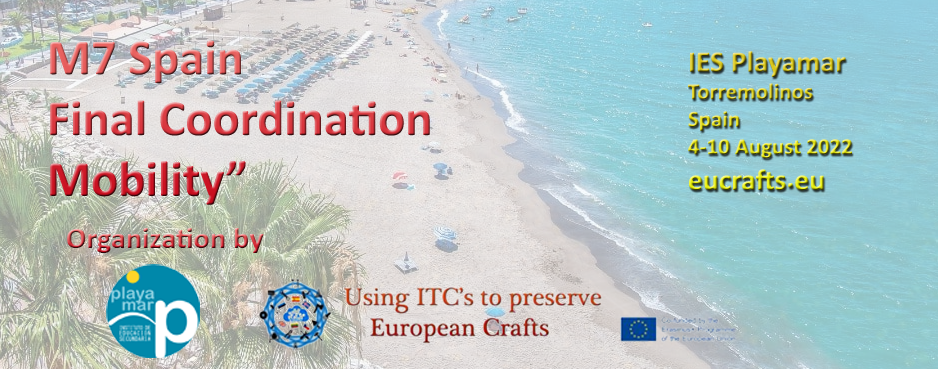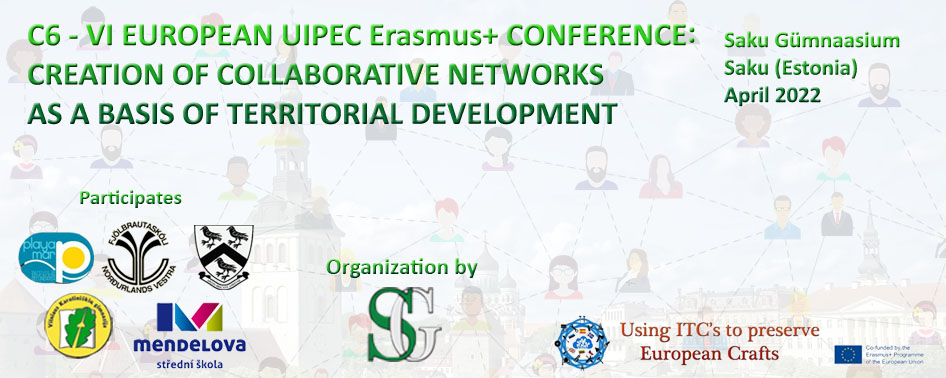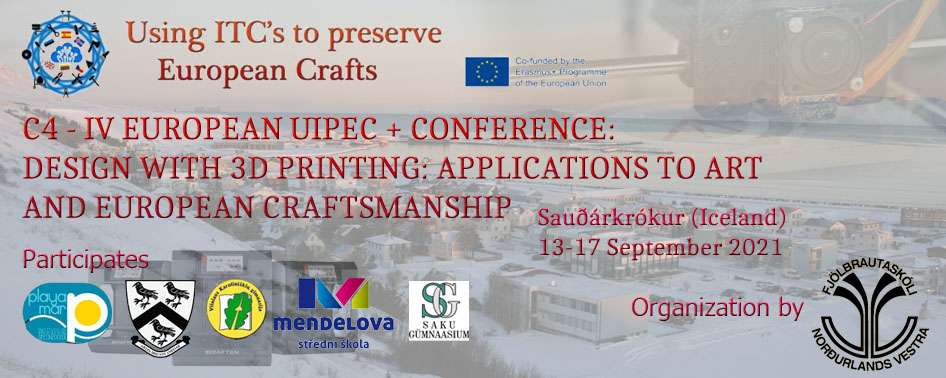What's UIPEC-Eucraft project?
UIPEC is the acronym of “Using ITC to Preserve European Crafts”
. It’s an educational Erasmus+ Project which aims to promote the
traditional crafts in the schools using the New technologies,
entrepreneurship methodologies among young people.
Schools involved :
IES Playamar (Spain)// Fjölbrautaskóli Norðurlands Vestra( Iceland) //
Fulston Manor School(UK)// Mendelova střední škola (C.Republic) // Saku
Gümnaasium (Estonia) // Vilniaus Karoliniškių Gimnazija (Lithuania)
Planned Mobilities:
// C1 Spain 11-19 // C2 United Kingdom 02-20 // C3 Czech Republic 11-21
// C4 Iceland 09-21 // C5 Lithuania 03-22 // C6 Estonia 04-22 // 
Shared Mobilities UIPEC – GBPE
Mobilities of GBPE project with common UIPEC activities: GBPE C3 Spain 03-22 // GBPE C4 Portugal 11-21 //

Final Products
Final Ceremony Video
turn on the sound
Erasmus+
ITC's
Crafts
Entrepreneuship
E-twinning
Diffusion
What's Happening?

Etwinning Quality Labels
Last week , Our Etwinning project associated with our Erasmus project got an new award with the recognition of the efforts of the Czech Team

Mobility M7 Spain VII Coordination Mobility
This Mobility M7 Spain Mobility has been configurated as the Optional Final Coordination Mobility of the Project : Using ICTs to preserve Europe

Etwinning Events
We have developed many live events in the etwining platform to share our formation 1. Programming a Database with Libreoffice from Scratch

Mobility C6 Estonia VI European Conference: “Creation of Collaborative Networks as Basis of Territorial Development”
This Mobility C6 Estonia Mobility has been configurated as the 6nd European Congress: "Creation of Collaborative Networks as Basis of Territo

Mobility C4 Iceland – European Congress: “DESIGN WITH 3D PRINTING: APPLICATIONS TO ART AND EUROPEAN CRAFTSMANSHIP”
This Mobility C4 Iceland Mobility has been configurated as the 4th European Congress: "Design with 3d Printing: Applications to Art and Europ

Mobility C2 United Kingdom – European Congress: “Innovative methodologies for the implementation of international educational projects”
This Mobility C2 United Kingdom Mobility has been configurated as the 2nd European Congress: "Innovative methodologies for the implementation

A38 Enterpreneurship Didactic units – Final Product
Download of the Didactic Units English Version (http://eucrafts.eu/didactic-units/ Spanish Version (http://eucrafts.eu/unidades-didacticas/

A44 Collaboration Network
This product was one of the final demanded products, a collaboration network which make explicit the links with entreprises, organizations,













